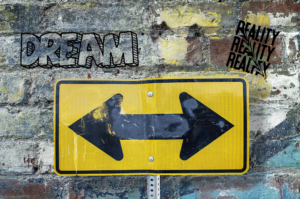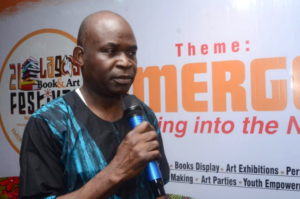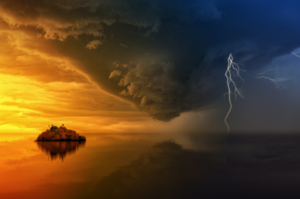
The scientific prowess of Man is phenomenal. From the iconic Neil Armstrong’s walk on the moon on July 20, 1969 to the most recent satellite launched towards Mars by the United Arab Emirates (UAE) on February 8 of this year — and more international missions to come, space seems about to be conquered. There seems to be no end to the relentless progress that defines our life.
But with technological success, a sense of superiority has come. Human beings increasingly consider themselves as invincible and entitled to rule over every corner of the Earth, every living creature and every blade of grass. How can we now reconcile this feeling of absolute power with the misery under which we are forced to live today because of a mere virus? Invisible to the naked eye but capable of undermining the very foundation of our existence. It just doesn’t add up. We have been humbled in the most terrifying way.
As we mourn our former “normality” and our illusions disappear, we are more aware of our inherent weaknesses. Science alone cannot protect us against terrible diseases as the Covid-19 pandemic shows us. Our health has become the biggest contemporary challenge we have to face. Our health and the health of our environment. Our health and the health of non-humans. The threat to our survival has sent panic all over the world. But this climate of fear can lead to terrible misjudgments. For example, we talk of war against the coronavirus as if it were a well-defined enemy. As if we were waging a conventional military battle between good and evil. Human beings on one side — viruses on the other side. Not quite. In reality, science is beginning to discover how essential viruses are for biodiversity, the evolution of species — starting with our own — and even climate balance. It is now common knowledge that since the industrial age, we have significantly altered our environment and therefore modified the way viruses behave. With unbridled urbanization, extensive deforestation, and industrial farming, the territory of animals has shrunk and promiscuity has increased at our own risk. Some viruses that were dormant in the wild have jumped from animals to humans. It was the case with bats during the AIDS, SARS, MERS and EBOLA epidemics among others.
We live in a profoundly unequal world. Yet, the many injustices at local and global levels are too often internalized and sometimes accepted in a fatalistic way. It is easier to fragment issues by refusing to accept that health disasters, global warming as well as economic and social crises are part and parcel of the same problem. Going back to normality for many among us still means going back to the old habit of looking the other way. This dangerous indifference prevents us from addressing the challenge of a free from Covid-19 future. The development of several vaccines against this terrible disease has offered great hopes that the end of the pandemic is getting closer. But not if the richest countries keep hoarding the vaccines like they do. Some Western governments have ordered or pre-ordered billions of doses at times enough to cover their populations five times over!
It is worth noting that this hoarding has even occurred between rich countries. Right at the start of the pandemic, there was a mad rush to get personal protective equipment (PPE) at all cost. Consignments were snatched up like commodities by the highest bidders sometimes right on airport tarmac, diverting them from their original destinations. Prices went up making it very hard for former “allies” to purchase the equipment let alone for poorer countries.
Funding scientific research and laboratories is very expensive but necessary if lives are to be saved. But the system has gone awry. Pharmaceutical companies have never before made profits on such an incommensurable scale. Never before had they acquired the power of life and death over billions of people around the world. They are the new masters.
The chair of the African Union (AU) and South Africa’s President Cyril Ramaphosa has expressed his outrage at the “painful irony” that some of the clinical trials for the Covid-19 vaccines were carried out on the African continent, which is now struggling to gain access to supply. With a population of about 1.2 billion people, it is expected that Africa will only access around 20% of the vaccines needed by the end of the year. This will happen through the COVAX initiative in which a group of countries and Western donors will pool their efforts to get the vaccines to Africa and other low income countries in the South. But the system is encountering all sorts of obstacles along the way, going from the slow pace of procurement coupled with the difficulties of conservation and distribution of the vaccines.
The first wave of the virus seemed to have largely spared the continent from huge fatalities. But the current second wave has increased the numbers of contaminations and deaths especially because of the existence of dangerous variants. In a place like Zimbabwe for example, public hospitals, private clinics and community health centers are experiencing critical shortages of protective equipment, let alone supplies of medicine, oxygen and ventilators. At the same time, the world economy recession has strongly impacted local markets which for the most part are rooted in the informal sector. Too often cash-strapped governments fail to allocate financial support for the majority of the population. It thus becomes very difficult to implement strict lockdowns in crowded popular areas. Curfews are the preferred sanitary measures although they are not as efficient as isolation.
The desire of Western leaders to look after their own people is understandable but impossible in the long run because it is a pandemic. No imaginary wall will keep the virus at bay. And not just one solution is available. As scientists and global health experts are learning and understanding more and more about the virus and its variants, the world needs to be multi-tasking. In fact, everybody should be multi-tasking at their own level. Nobody is too young, too old or too far to contribute. There are still multiple possibilities, many opportunities to bring back confidence in our humanity. A renewed sense of solidarity within each country and between nations has the power to achieve a lasting change. The belief that science is not private property and that it requires the sharing of knowledge of different kinds, extensive collaboration and world vision. We owe it to ourselves and to this small blue planet lost in the darkness of an expansive cosmos.
**************
Véronique Tadjo is the author of In the Company of Men, out now from Other Press.









COMMENTS -
Reader Interactions